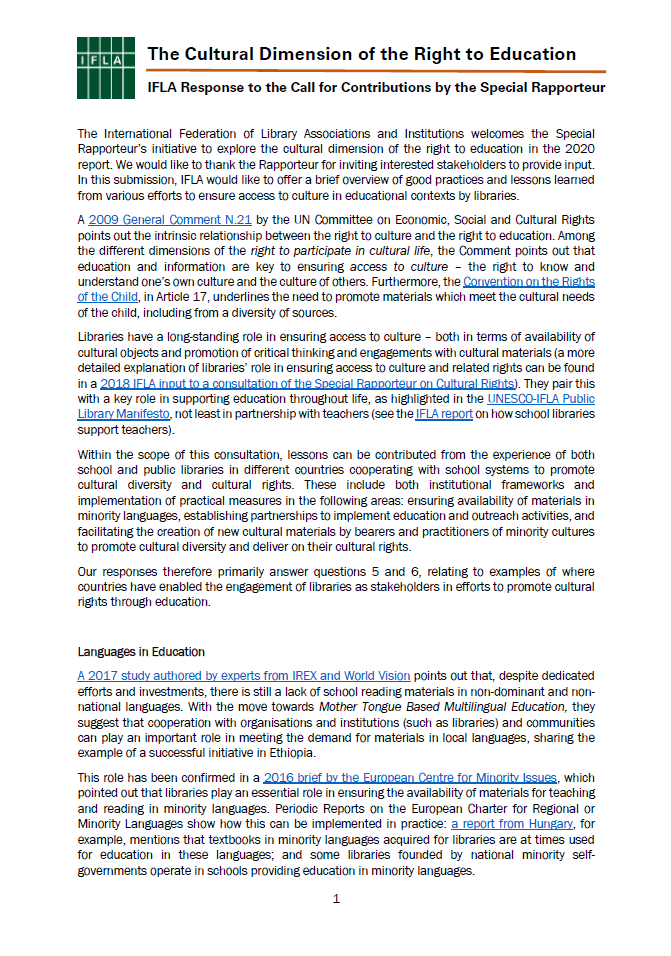IFLA Input to a UN Human Rights Council Report on the Cultural Dimension of the Right to Education
28 February 2020
IFLA has prepared a response to the call for submissions by the United Nations Special Rapporteur on the Right to Education, highlighting the role libraries play in realising people’s right to culture in educational contexts.
a response to the call for submissions by the United Nations Special Rapporteur on the Right to Education, highlighting the role libraries play in realising people’s right to culture in educational contexts.
Libraries play an important role in ensuring equitable and inclusive access to culture and heritage for their communities. They provide basic cultural services and strive to remove financial and other structural barriers to cultural access and participation, helping deliver on the right to participate in cultural life.
The right to culture is not just a general concept, but also applies in specific contexts, not least in education. People should be able to learn about their own culture and the cultures of others, learn and receive instructions in their mother togues – and access learning materials which are sensitive and relevant to their cultural heritage.
That is why the United Nations Special Rapporteur issued a call for submissions to explore the cultural dimension of the right to education, particularly in schools. IFLA’s input to this call for submissions focuses on the role libraries play in ensuring that school systems protect and promote students’ cultural rights.
In particular, it highlights how school and public libraries provide access to educational materials in minority languages, and how existing frameworks and assessment strategies – like the IFLA guidelines for Library Service to Multicultural Communities and the IFLA and UNESCO School Library Guidelines – can guide planning and implementation of library services that help deliver on students’ cultural rights.
You can read the full text of IFLA’s submission below: